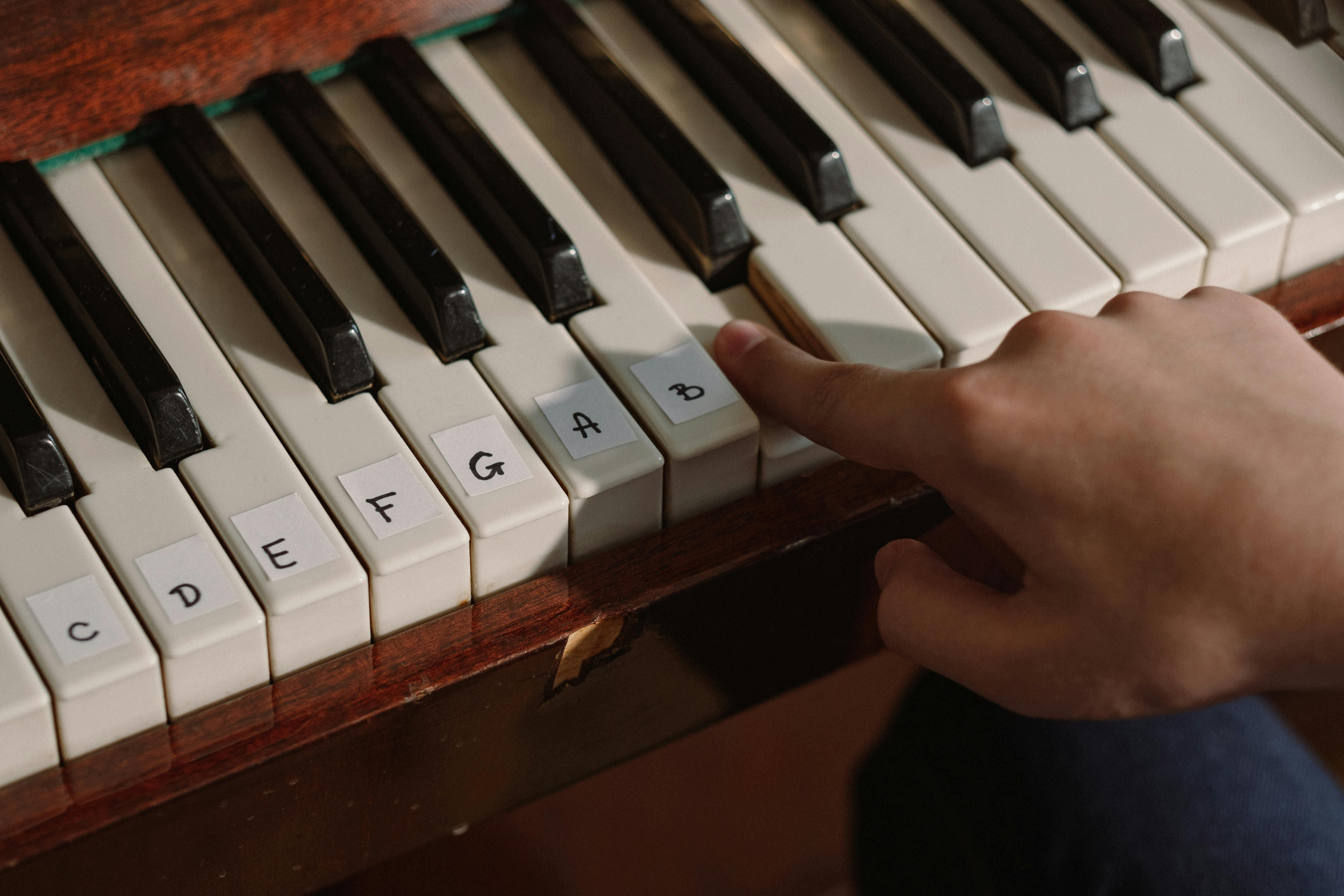- Blog
- Music and Dance
- Piano Lessons for Beginners
A Guide to Piano Lessons for Beginners
Whether you’ve decided to learn the piano as a hobby, want to pursue a career in music, or are looking for resources to complement your child’s piano lessons, we’ve gathered a beginner’s guide to help you get started. Starting with posture, keys and simple chords, take your time to build a strong foundation before you move on to play the simple songs we provided at the end of this blog. You can use FindTutors to find a private piano tutor in the UK if you think learning the piano on your own will be challenging.
Piano Posture, Keys, and Simple Chords for Beginners
What is the correct posture when playing the piano?
Developing strong technique and voiding injury is only possible by having a good piano posture. Follow these guidelines for a good posture:
- Sit in the middle of the bench.
- Position your knees directly underneath the keys.
- Relax your shoulders and try to keep your back straight. (It will feel more comfortable in time!)
- Aim for a 90-degree angle between your lower and upper arms when your hands are on the keys.
- Your forearms should be the same level with the keys. If you're sitting too high and your elbows straighten, lower yourself. If you’re too low, use a small pillow to raise yourself. Your elbows should never go below the keys, because this can create tension in your hands and arms, which may lead to injury.
Here is an example of good arm positioning while playing the piano:

How to number fingers for the piano?
Pianists use a standard numbering system for fingers:
- Thumb = 1
- Pinky = 5
Thumbs are always numbered "1" for both hands.
How to understand keys on a piano?
The black keys on a piano are arranged in groups of two and three. The white key to the left of any group of two black keys is a C. The notes go in order from C: C, D, E, F, G, A, B, then the cycle repeats.

What piano chords should I learn first?
Let's start with the most common simple chords. You might wonder which fingers to use on each key, but it’s often a matter of personal preference and comfort. Experiment to find what feels most natural for you. For now, focus on playing these with your right hand, and we’ll cover the left hand shortly.
- C Major: Play G, C, and E at the same time. Try using your thumb on G, index finger on C, and ring finger on E, and remember, you might need some time to find your comfortable finger positioning.
- F Major: Play A, C, and F together. Use your thumb on A, index finger on C, and pinky on F.
- G Major: Play G, B, and D together. Use your thumb on G, index finger on B, and ring finger on D.
A tip: If someone is not saying “major” after referring to the chord, it is assumed. With “minor”, it is always said. So if someone is saying:
“I am playing G”, it means they’re playing G major.
- A Minor: Play A, C, and E simultaneously. Use your thumb on A, index finger on C, and ring finger on E.
Left-hand Basics
This is quite simple! Your left hand will play following root of the chord you're playing with your right hand. For example:
- C Major: Play C with your left hand.
- F Major: Play F with your left hand.
- G Major: Play G with your left hand.
|
Chord Symbol |
Notes |
Chord Name |
|
C |
C-E-G |
C major |
|
G |
G-B-D |
G major |
|
F |
F-A-C |
F major |
|
Am |
A-C-E |
A minor |
Popular songs to play on the piano for beginners
Many famous songs are built using just these four chords. For example, you can try playing:
- “Imagine” by John Lennon.
- "Let It Be" – The Beatles
- "With or Without You" – U2
- "Someone Like You" – Adele
- "No Woman, No Cry" – Bob Marley
- "I'm Yours" – Jason Mraz
- "Stay With Me" – Sam Smith
- "Perfect" – Ed Sheeran
- "Demons" – Imagine Dragons
- "Shallow" – Lady Gaga & Bradley Cooper
- "Take Me Home, Country Roads" – John Denver
Where can I take good piano lessons?
Piano can be a complex instrument, but with the right guidance, you can easily achieve your musical goals. Before seeking private piano lessons, it’s important to assess your current level and set some clear objectives. While there are countless online resources available in today’s digital world, there’s no doubt that with the help of a professional piano tutor, you can progress faster.
On FindTutors, you’ll find many private tutors in the UK offering piano lessons for all levels and ages. All you need to do is decide between in person and online private tuition, find a tutor, send a few messages to the ones you think might be a good fit, and you're set to go!
Related articles:


